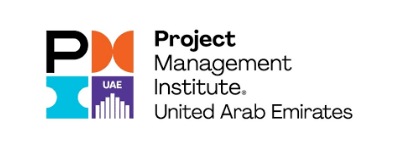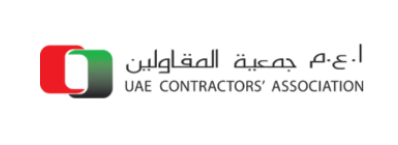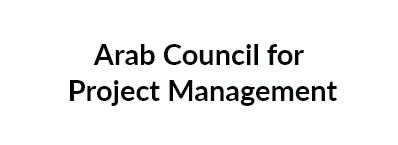Introduction
Over the past decade, platforms such as the Project Controls Expo (PCE) and other global initiatives have brought about a significant transformation in the project controls profession.
As part of our continued commitment to the advancement of the industry, we take this opportunity to highlight several key initiatives and regional developments that have contributed to the growth, recognition, and institutionalization of project controls as a discipline.

 United Kingdom
United Kingdom

Infrastructure and Projects Authority (IPA)
The UK government has led several groundbreaking efforts to institutionalize project controls in major infrastructure and complex project delivery. One of the most notable outcomes is the establishment of the Infrastructure and Projects Authority (IPA)—now known as NISTA (National Infrastructure and Service Transformation Authority). Positioned at the heart of government, it reports directly to the Cabinet Office and HM Treasury, setting benchmarks for project delivery excellence.
.png)
Institution of Civil Engineers (ICE)
In parallel, the Institution of Civil Engineers (ICE) established the Infrastructure Client Group (ICG), which unites progressive infrastructure clients with government and industry stakeholders. ICG’s mission is to lead transformational improvements in infrastructure delivery, aligned with economic, social, and environmental outcomes. Notable industry-wide efforts include Project 13—a model that promotes integrated, collaborative delivery—and the Construction Playbook, a government-backed blueprint for procurement and project delivery best practices.

UK National Audit Office (NAO)
The UK National Audit Office (NAO) has contributed extensively by providing frameworks to ensure project control capability across defense, economic, and sustainability-focused initiatives—such as the national push towards Net Zero.

International Coalition for Sustainable Infrastructure (ICSI)
Climate-linked KPIs in project controls have led to collaborations with global sustainability movements. One such body, the International Coalition for Sustainable Infrastructure (ICSI)—founded by The Resilience Shift, ASCE, ICE, and others—focuses on the role of engineers in driving climate action. Their COP26 Roundtable Discussion Paper remains a key resource for aligning infrastructure with global climate goals
On the educational front, the Department for Education launched apprenticeship programs to develop the next generation of professionals. These include:
- Level 3 – Project Controls Technician
- Level 6 – Project Controls Professional
These Trailblazer programs mark a significant milestone in recognizing project controls as a distinct and critical profession.

 United States
United States
In the United States, project controls has gained prominence through both governmental and industry-led advocacy. Various organizations have played vital roles in elevating the profession:

Construction Management Association of America (CMAA),
CMAA sets the industry standard for construction management. Its guidelines cover all major disciplines—Time, Cost, Risk, Quality, Claims, and Contract Administration.
CMAA’s certification programs and national network foster consistent standards and professional development.
.png)
AACE International
A long-established authority in cost engineering and project controls, AACE has developed the Total Cost Management (TCM) Framework, offering a comprehensive approach to portfolio, program, and project management.
TCM is the basis for over 100 Recommended Practices covering scheduling, cost estimating, earned value, and risk management. AACE’s certifications are globally recognized benchmarks for project control excellence.

Royal Institute of Chartered Surveyors (RICS)
The U.S. division of RICS promotes global standards in surveying and project delivery, with a focus on training and technical competence.

College of Performance Management (CPM)
A long-time proponent of earned value and performance measurement, CPM supports initiatives across both government and private sectors.
National Defense Industrial Association (NDIA)
NDIA provides thought leadership and guidance on Earned Value Management (EVM) through its Scalability Guide, aligned with EIA-748 standards. Agencies such as the U.S. Army Corps of Engineers (USACE) and GSA also enforce rigorous project controls frameworks informed by AACE and CMAA best practices.

 Australia
Australia
Australia has made global headlines with its forward-thinking strategies in infrastructure and project controls:

The 2021 Infrastructure Market Capacity Report and advisory papers on Infrastructure Resilience have been instrumental in shaping national policy.

Reports by the Grattan Institute—such as Towards Net Zero and The Rise of Megaprojects—have highlighted the importance of effective controls and governance.

ACES (Australian Cost Engineering Society) and RES (Risk Engineering Society), in collaboration with Engineers Australia, have advocated for Chartered status for Project Controls professionals, further formalizing the discipline.
 Middle East and UAE
Middle East and UAE
The Middle East continues to be a global leader in large-scale infrastructure and industrial project delivery. The UAE in particular has seen exponential growth, with:
- 598 O&G projects worth over USD $550 billion planned across the region (2022–2026).
- USD $77 billion in projects at the tender stage.
- Over USD $350 billion in design and feasibility stages, including transportation, energy, ports, railways, and water systems.

In response to this surge, professional bodies such as:



have played pivotal roles in fostering industry-wide adoption of project controls standards.
The UAE government has also taken a strategic leadership position, investing in skill development, digital transformation, and the integration of advanced technologies into project delivery systems.
 Brazil
Brazil
As the largest economy in Latin America, Brazil has seen an increasing institutionalization of project controls across its public infrastructure, energy, and industrial sectors. The country has embraced best practices in project governance, cost management, and risk assessment, particularly in large-scale capital projects funded by both government and international partners.

National Department of Transport Infrastructure (DNIT) and Brazilian Development Bank (BNDES)
These institutions have embedded structured project controls in transportation and infrastructure financing, requiring transparent budgeting, scheduling, and performance monitoring frameworks. Their project evaluation criteria increasingly mirror global standards such as those outlined by PMI and AACE.

Petrobras Project Management Maturity Model
The national oil and gas giant, Petrobras, has long been a leader in project management. Their Proprietary Maturity Model and internal project controls methodology are considered benchmarks in Latin America, especially in managing schedule and cost risks across deepwater and pre-salt energy developments.

Brazilian Association of Project Management (ABGP)
ABGP has actively promoted project controls education, certification, and best practice dissemination. It also collaborates with international organizations like IPMA and PMI to ensure Brazilian professionals stay aligned with global trends.

Integration of BIM and Digital Engineering
Brazil is increasingly integrating Building Information Modeling (BIM) into public procurement and project execution processes. Federal mandates have begun requiring BIM use for infrastructure and building projects, fostering greater alignment between design, scheduling, and cost management functions.

Energy and Infrastructure PPP Frameworks
Brazil has one of the most active Public-Private Partnership (PPP) pipelines in the developing world. Project controls play a crucial role in ensuring accountability and performance metrics are met, particularly in large infrastructure developments such as highways, sanitation projects, and renewable energy parks.

Academic and Certification Ecosystem
Brazilian universities such as USP (University of São Paulo) and UFRJ (Federal University of Rio de Janeiro) offer advanced degrees in project and construction management, with modules dedicated to cost control, earned value, and digital project delivery. Additionally, PMP and AACE certifications are growing in adoption among Brazilian professionals.
Summary
The global investment landscape is entering a new era of capital deployment, with project controls/management costs representing 7–15% of Total Installed Cost (TIC)—a figure underscoring its critical value in ensuring outcomes and accountability. In an industry worth trillions, these percentages translate into billions of dollars, all hinging on the effective application of project controls.
Project Controls Expo (PCE) remains committed to supporting and advancing global initiatives that promote effective project delivery. With joint ventures and mega-projects becoming the norm, it is vital to align talent, training, and technology.
We continue to bring professionals, apprentices, educators, and technology providers together under one roof—to share best practices, explore AI and machine learning innovations, and anticipate the skills needed for future generations.

Acknowledgements
We extend our heartfelt gratitude to the professionals and contributors who provided insights and expertise to shape this article. Your continued support helps foster excellence across the project controls ecosystem.

 United Kingdom
United Kingdom 






















.png)
.png)
